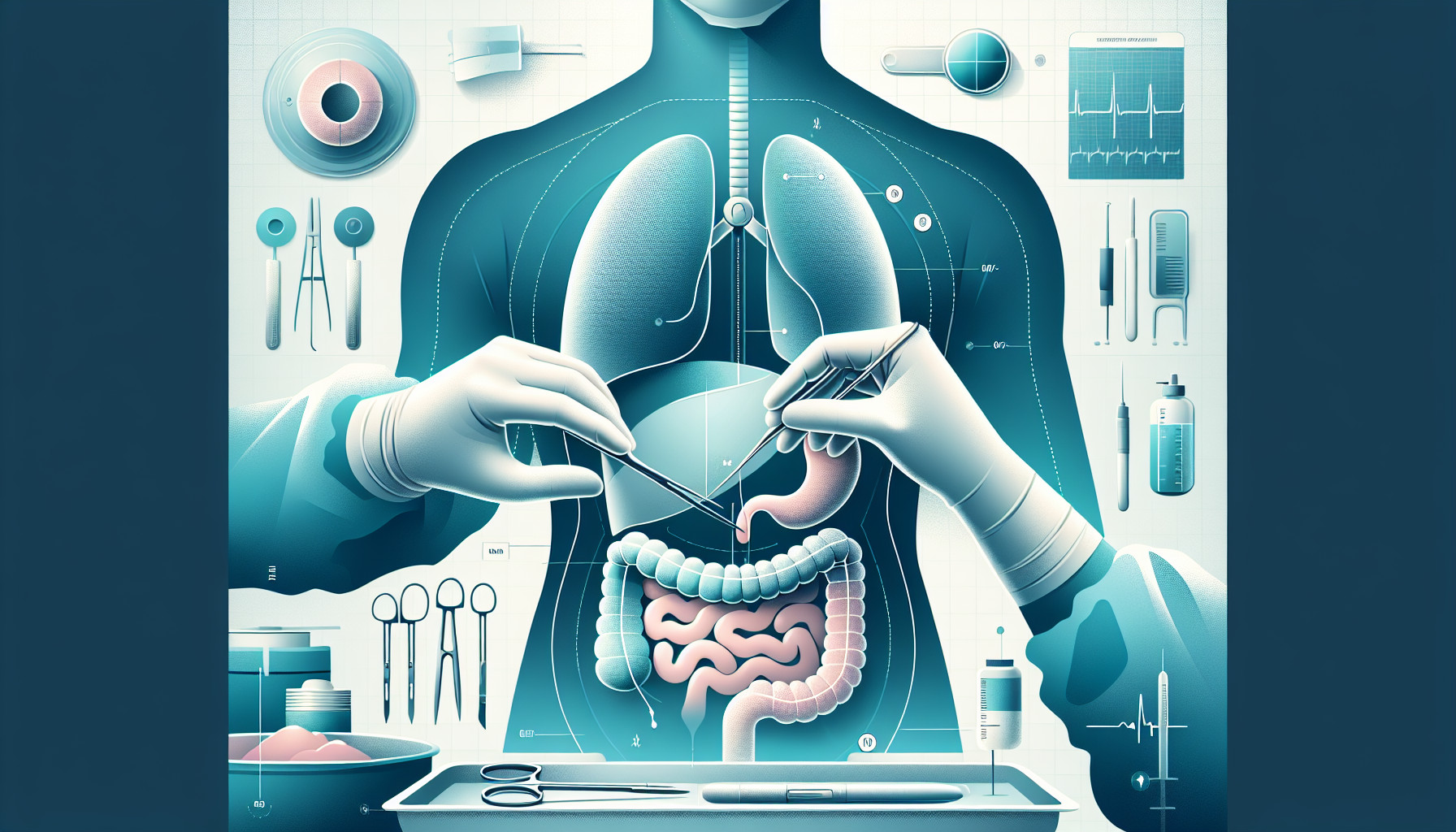Our Summary
This study aimed to understand how often a hiatal hernia (HH), a condition where part of the stomach pushes up through the diaphragm muscle, is repaired during a certain type of weight loss surgery known as conversion bariatric surgery. The researchers looked at nearly 13,000 patients who underwent this surgery in 2020. They found that a HH was repaired in about one in four cases. The most common time for this to occur was during a procedure known as a sleeve gastrectomy to Roux-en-Y gastric bypass (33.1% of cases), followed by an adjustable gastric band to sleeve gastrectomy conversion (20.2%). Other types of conversions had a repair rate of around 13%. Only about one in eight of these repairs used a mesh.
The primary reason for converting to a different type of weight loss surgery was to treat gastroesophageal reflux disease (GERD), a type of chronic acid reflux. This was especially the case for patients who had a HH repair, with almost half reporting GERD as the main reason for their surgery, compared to less than a quarter of those who didn’t have a HH repair.
FAQs
- What is the rate of hiatal hernia repair during conversion bariatric surgery?
- What is the most common type of conversion surgery during which hiatal hernia repair is performed?
- What is the primary indication for conversion in SG to RYGB cases?
Doctor’s Tip
A helpful tip a doctor might give a patient about hiatal hernia repair is to follow post-operative instructions carefully to ensure proper healing and reduce the risk of complications. This may include avoiding heavy lifting, sticking to a soft diet, and taking prescribed medications as directed. It is also important to attend follow-up appointments with your healthcare provider to monitor your progress and address any concerns.
Suitable For
Patients who are typically recommended hiatal hernia repair are those undergoing conversion bariatric surgery, particularly those undergoing sleeve gastrectomy to Roux-en-Y gastric bypass conversion or adjustable gastric band to sleeve gastrectomy conversion. Patients with gastroesophageal reflux disease (GERD) as the primary indication for conversion surgery are more likely to also have a hiatal hernia repair.
Timeline
Before hiatal hernia repair:
- Patient experiences symptoms of hiatal hernia such as heartburn, chest pain, difficulty swallowing, and regurgitation.
- Patient may undergo diagnostic tests such as endoscopy, barium swallow, or esophageal manometry to confirm the presence of a hiatal hernia.
- Patient may be prescribed medications such as proton pump inhibitors to manage symptoms.
- In cases of severe symptoms or complications such as gastroesophageal reflux disease (GERD) or Barrett’s esophagus, surgery may be recommended.
After hiatal hernia repair:
- Patient undergoes hiatal hernia repair surgery, which may involve laparoscopic or open surgical techniques.
- Recovery period following surgery includes pain management, dietary restrictions, and activity modifications.
- Patient may experience temporary side effects such as bloating, gas, or difficulty swallowing.
- Patient is advised to follow-up with their healthcare provider for post-operative care and monitoring.
- Patient may experience improvement or resolution of symptoms such as heartburn and regurgitation following surgery.
What to Ask Your Doctor
- What is a hiatal hernia and how is it related to my conversion bariatric surgery?
- Do I have a hiatal hernia that needs to be repaired during my conversion surgery?
- What are the risks and benefits of having a hiatal hernia repair during my surgery?
- How will the hiatal hernia repair affect my recovery time and overall outcome?
- Will a mesh be used during the hiatal hernia repair, and if so, what are the potential complications associated with it?
- How common is it for patients undergoing conversion bariatric surgery to also have a hiatal hernia repair?
- What symptoms should I watch for after the surgery that may indicate a complication related to the hiatal hernia repair?
- Will the hiatal hernia repair improve my symptoms of GERD or other related conditions?
- Are there any dietary or lifestyle changes I should make after the surgery to support the healing of the hiatal hernia repair?
- Are there any long-term implications or risks associated with having a hiatal hernia repair during my conversion surgery?
Reference
Authors: Friedman A, Li YH, Seip RL, Santana C, McLaughlin TL, Bond DS, Hannoush E, Tishler D, Papasavas PK. Journal: Obes Surg. 2023 May;33(5):1613-1615. doi: 10.1007/s11695-023-06521-6. Epub 2023 Mar 13. PMID: 36907950
